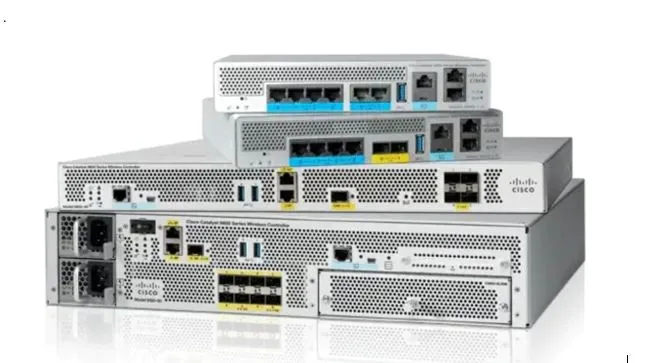Comparing Private 5G vs. Public 5G – Benefits, Risks, and Use Cases
The 5G technology has completely reshaped our daily lives. With fast networks, we can now stream on the go, drive autonomous vehicles, benefit from smart homes, and so much more. Introducing 5G core to industrial operations is every bit as vital, significantly increasing the efficiency and effectiveness of modern businesses.
While every 5G network provides certain advantages to users, we have to differentiate between public and private solutions. Each of these options comes with its own set of challenges, whether we’re talking about control, cost, or customization. In this article, we’ll go through all the risks and benefits of 5G, and we’ll explain how you can get the most out of this technology.
What Is Private 5G?
Private 5G networks, sometimes referred to as NPNs (non-public networks), are specifically designed for a business’s unique needs. A company in charge will have full control over infrastructure, services, and spectrum, allowing them to create digital microenvironments.
The main characteristic of private 5G networks is localized coverage. A network’s radius of effect is usually limited to a specific factory or office space, ensuring that other parties can’t access its resources.
Other common traits of 5G networks include customized configuration and dedicated resources. Basically, the company’s IT team can manage its resources any way they like, ensuring constant performance. The technicians can utilize network slicing, latency optimization, and bandwidth allocation to get the most value out of its 5G.
What Is Public 5G?
Public networks are accessible to all users who have a subscription with a particular operator. Unlike private models, these networks are suitable for a wide range of users, whether we’re talking about casual network users or businesses that don’t require the benefits of a private network.
The great thing about public 5G is that it provides a wide coverage. Similar to 3G and 4G, these systems were created to serve as many users as possible, across various cities and regions. Millions of people share its resources with its services optimized for the most common use case.
Private 5G Benefits
As mentioned, private networks are ideal for large industrial businesses with unique needs, but they can also be used in various other situations. Here are a few benefits users enjoy with private 5G:
-
- Improved Security: Company retains full control of all its data. Unlike public networks, there is much less exposure to external factors, that is, hackers.
- Superior Performance: After acquiring a private network, an organization can enjoy dedicated infrastructure and spectrum. Furthermore, 5G’s ultra-low latency allows companies to use smart industrial machines. Private 5Gs enable real-time analytics, robotics, and other forms of automation.
- More Control: Besides data, the company will have complete control over other processes, including access, traffic prioritization, and configuration. Through slicing, businesses can separate the infrastructure into smaller partitions that will serve specific purposes.
- Customized Coverage: A company can limit coverage to a specific area, whether it’s an industrial site or a large office building. As a result, a business can ensure seamless connectivity for its users and machines, without dead zones.
Public 5G Benefits
Most people in the world use public 5Gs on a daily basis. These are your “regular” networks that you have at home, and that provide a wide range of services. Here are a few things that make them unique:
-
- Availability: 5G networks are available to all subscribed users, whether they live in urban or rural areas. People using public networks can move from city to city without ever losing their connection.
- Fast Access: As soon as you subscribe to network services, you’ll gain access to these networks without the need for configuration. Furthermore, many of these 5G are free in public spaces, so you don’t even have to rely on your personal subscription. Public 5G also doesn’t require special maintenance.
- Cost-Efficient: Unlike business entities, private users don’t have to build an infrastructure from scratch and, instead, they utilize operators’ systems. A subscription-based model is especially valuable for small companies with limited resources.
Private 5G Challenges
Given that both of these network types are created for specific uses, they have a fair share of shortcomings. Specifically, you’ll face the following risks and challenges when using private 5G:
-
- Expenses: As indicated, you need to build a private infrastructure from scratch. This means investing in spectrum licensing, hardware, software, and technicians. What’s worse, spending all this money doesn’t ensure you’ll achieve your business goals.
- Regulation: Spectrum licensing, in particular, is tricky. Not only does it cost a lot, but it also requires abiding by a specific regulation.
- Complexity: Unlike public networks, which work as plug-and-play solutions, private 5G requires deployment, configuration, and monitoring. The added complexity will further increase your costs.
Public 5G Challenges
Modern 5Gs are great for casual users who don’t have specific needs. However, if you’re a small business, you might encounter different issues that could stifle your operations:
- Control: You have no control over traffic and network configuration. So, you must adjust your needs to match what you’re receiving from the provider.
- Security: As there are many more users in public networks, data leaks and breaches are much more common. This makes them a poor choice for companies that conduct most of their operations online.
- Congestion: Increased traffic might affect your performance during peak hours.
Private 5G Use Cases
Private 5Gs are an ideal option for the following use cases:
- Connected machines and equipment
- Medical robots
- Smart container tracking
- Using digital twins
- IoT corporate offices
- Private cloud
Public 5G Use Cases
On the other hand, public 5G is much more suitable in these situations:
- Autonomous vehicles
- Venues’ guest connectivity
- Live streaming and gaming
- Public safety
- Mobile translation
- Smart traffic lights
Private vs. Public 5G
Private 5Gs are ideal for large companies with specific needs, while public ones are great for everyday use. Your choice of network will also be affected by the size of your company, as small businesses can’t justify deploying private solutions.





